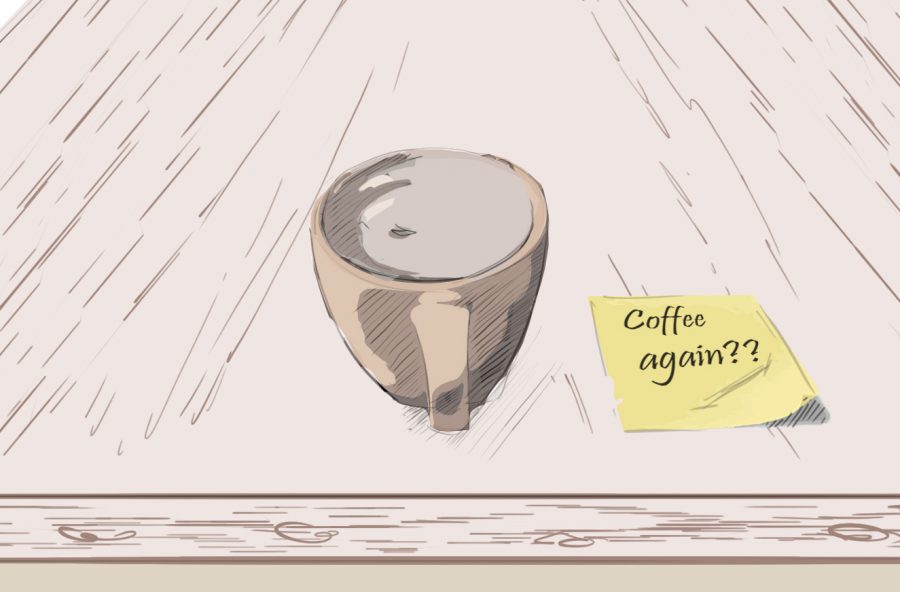If you’re anything like me, an 8 a.m. class is hell on earth.
The ritual starts right when you wake up; that first cup of coffee hits your lips within minutes of rolling out of bed and, by the time you finish your morning classes or morning shift at work, you might be on your third or fourth cup. You feel alive and energized, ready to conquer what the day has to offer. Then, mid-afternoon rolls around.
Suddenly that energy disappears and everything feels slow again, as you might be more likely to take a nap rather than go to afternoon classes or run errands. This is referred to as the “afternoon slump”, which might happen to non-coffee or caffeine drinkers as well, but is infamous for sometimes affecting people after their morning caffeine has worn off.
The reason for this slump goes beyond just simply the lack of caffeine in your system. According to a study conducted by the Institute of Pharmacology and Neurosciences, caffeine binds with the same receptors that bind with adenosine, a neurotransmitter that makes us tired. Since the caffeine blocks adenosine, we are more alert while having it in our system. However, when our brains don’t regularly get enough adenosine, it creates more receptors, which makes us more tired when we don’t have caffeine to block those receptors.
This creates a dependency on caffeine, which is proven to have a multitude of health effects besides the additional tiredness after the morning has passed. There are many health-related conditions that the caffeine in coffee brings, but one of the most alarming is caffeine’s effect on the insulin your body produces. Caffeine causes insulin to surge, which leads to inflammation and increased stress hormones. At the same time, it causes decreased insulin sensitivity and can cause high blood sugar and a risk for cardiovascular disease.
Now that we know that drinking excessive coffee and caffeine in the morning wrecks our bodies and late-day motivation, how do we break the cycle? As an avid coffee drinker, I know it’s hard to break the habit and there are still weeks where I fall off the wagon and end back up in that four cups a day danger zone. But, when I stick to these guidelines, I end up feeling less tired both in the mornings and afternoons without frightening health effects.
How to avoid caffeine withdrawal with easy coffee replacements:
Drink water: Water will not only flush out your system of toxins but will also help your body repair damages. Drink six to eight glasses of water a day .
Exercise: This will prevent fatigue in the morning, even if it’s just a quick walk or jog.
Eat a nutritious breakfast: Replacing coffee with a meal in the morning will improve blood sugar levels and substitute that dependence of needing to have a cup in the morning. Even just a handful of nuts or seeds will do the trick, if you’re short on time.
Drink green tea: This tea’s antioxidants are good for you and a few cups a day doesn’t have enough caffeine to do harm. If green tea isn’t your thing, there are many caffeine free teas with herbal benefits that are available at most grocery stores. Or, try out a sleepy-time tea if getting to sleep or getting enough sleep is an issue for you.
Lastly, make sure to get enough sleep while trying to cut coffee out of your lifestyle.
Rayanne Painter can be reached at opinoneditor@theorion.com or @rayphenomenon on Twitter.






